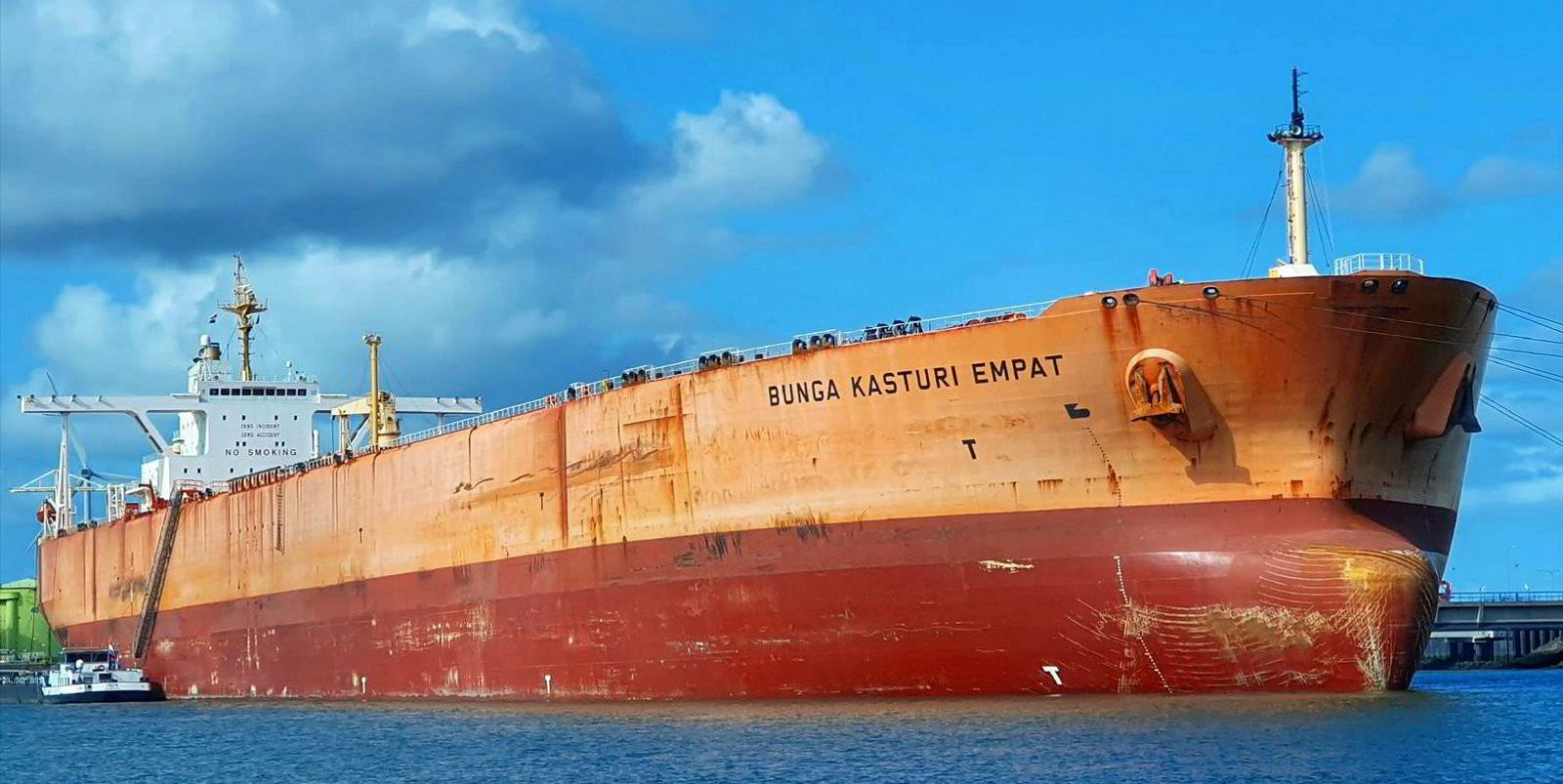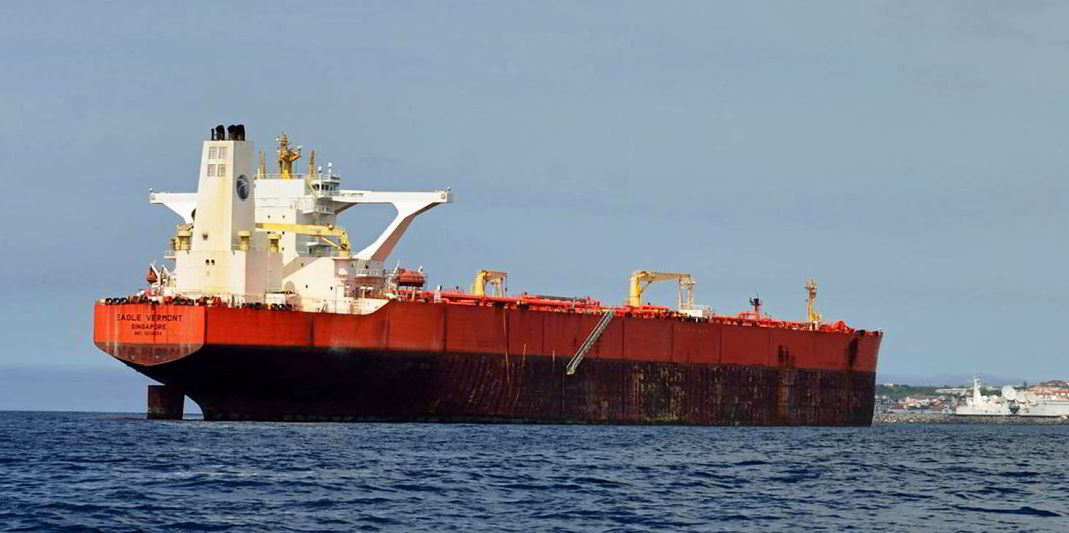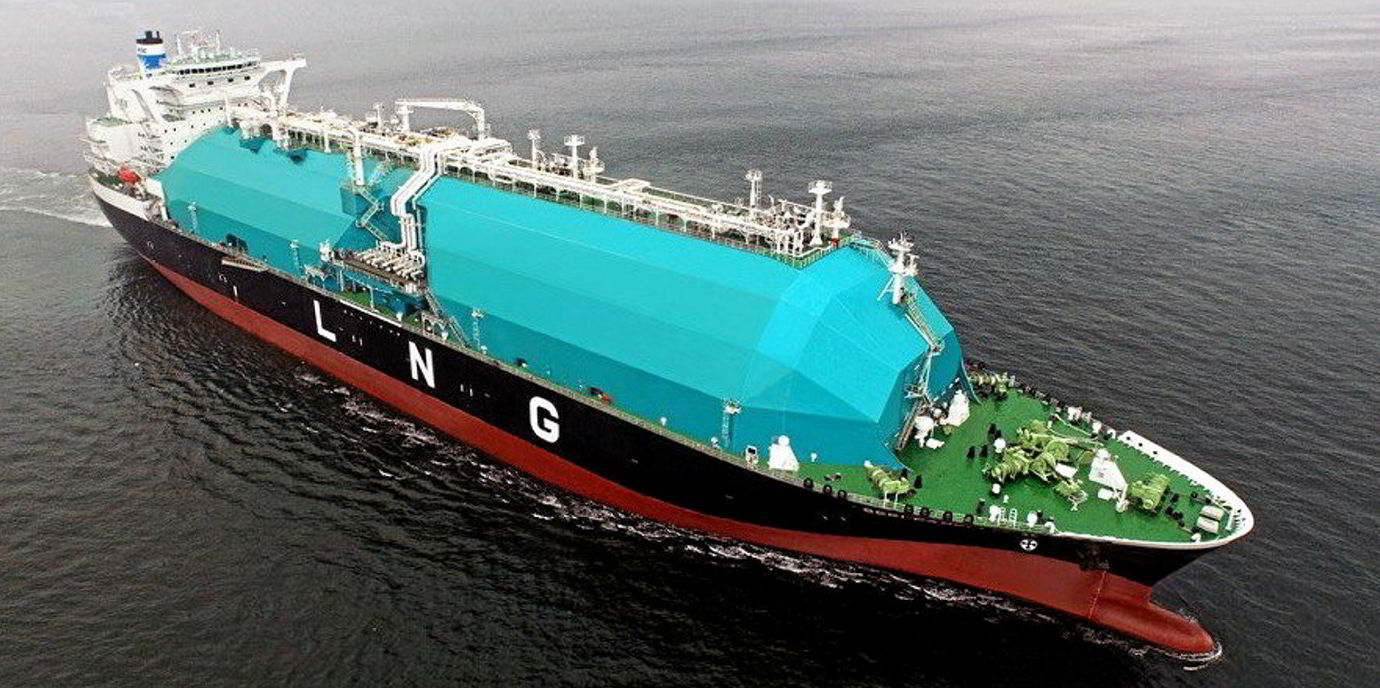AET, the tanker arm of Malaysian shipping giant MISC Berhad, is reportedly selling another of its VLCCs.
Brokers said this week that the 300,000-dwt Bunga Kasturi Empat (built 2007) is in the process of being sold to conversion buyers for $35.5m.
The sale is said to be part of the company's longer-term agenda to rejuvenate and maintain a VLCC fleet of eco-efficient vessels including LNG dual-fuel ships.
AET would not comment on reports of the sale, citing its policy not to comment on its commercial arrangements.
The ship is described as being built to high specifications, which accounts for it being sold for slightly higher than the average market value of a VLCC of the same vintage, which VesselsValue assesses to be $33.3m.
The vessel will be the fifth VLCC to leave AET's fleet over the past 12 months.
AET sold two VLCCs in 2020 beginning with the 300,000-dwt Bunga Kasturi (built 2002), which was sold to India’s Bellatrix Shipping in March 2020. In October, the 300,000-dwt Bunga Kasturi Tiga (built 2006) was sold to Patria Nusasegara of Indonesia.
In February of this year, two bareboat chartered VLCCs — the 300,000-dwt Eagle Vermont and 307,000-dwt Eagle Virginia (both built 2002) — were sold by owner Icon Capital to Chinese interests ahead of the conclusion of their charters.
Strategic shift
The departure of the Bunga Kasturi Empat and the yet-to-be-handed-back Eagle Virginia will leave AET with eight VLCCs going forward.
Three, like the Bunga Kasturi Empat, were built by Universal Shipbuilding of Japan between 2005 and 2007.
Tanker sector sources said AET employed the bulk of these on long-term period charters to oil majors and traders, and is opting to sell them when the charters conclude rather than put them in the spot market.
On numerous occasions, senior executives at AET have said the company was undergoing a strategic shift towards building long-term secured income through its niche shuttle tanker business and long-term contracts, preferably involving vessels with eco-friendly LNG dual-fuel systems.
While the company's current VLCC fleet is shrinking, this is a temporary reduction as new units will be added against long-term contracts.
It is currently building two LNG-fuelled VLCCs at Samsung Heavy Industries for Total charters that are set to begin in 2022.
Parent MISC Berhad recently described the prospects for the tanker market in 2021 as being uncertain.






